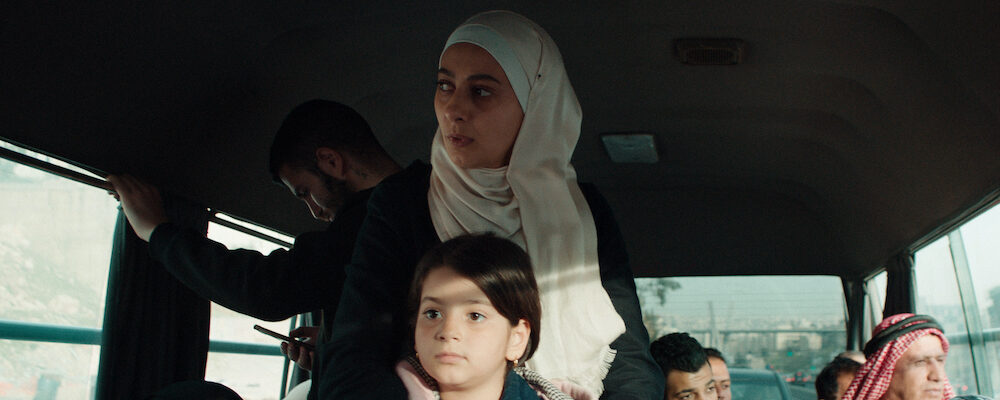Amjad Al-Rasheed’s ‘Inshallah a Boy’ Is an Absorbing Exploration of a Woman’s Plight in an Oppressive Society
Sandra Miska
One woman’s struggle to carve out her own destiny, for herself and for her young daughter, is at the center of “Inshallah a Boy,” a gripping drama from Jordan. In this feature debut from Amjad Al-Rasheed, Palestinian actress Mouna Hawa gives a stunning performance as Nawal, a young widow who is forced to get creative after her brother-in-law, Rifqi (Haitham Omari), comes to collect half of her and her late husband’s assets.
At the start of the story, Nawal is trying to conceive a second child with her husband, Adnan (Mohammad Suleiman). The pair are already parents to a little girl, Nora (Seleena Rababah). Tragically, Adnan dies in his sleep and before Nawal can even fully process her grief, Rifqi comes to collect his “inheritance,” even though what his brother left behind in terms of assets is not a lot — a pick-up truck and a rat-infested apartment. Because Adnan did not have a son, under the law, his brother is entitled half of what he left behind. What makes this even more unjust is the fact that Nawal was the one who paid the down payment for the apartment with her earnings, but because the apartment is under her husband’s name, it legally was never hers.
For some time now, Nawal has been employed as an in-home nurse for an elderly woman with dementia. Although she does not drive, she asks Rifqi to allow her to finish making the payments on the truck that Adnan originally bought from him. The truck seems to symbolize something for her, although this does not become fully clear until the end of the story. But her biggest worry, understandably, is losing the apartment. If that were to happen, she would be forced to move in with Rifqi, or let him take custody of Nora and move in with her own brother, Ahmad (Mohammed Al Jizawi). The latter genuinely cares for his sister and believes he has her best interests at heart, but Nawal is hardly reassured about her future when he promises to find her a new husband.
Al Rasheed does a great job of backing Nawal into a corner, and what makes this story even more compelling is that she, her brother-in-law and brother all sincerely believe themselves to be in the right, not just because of the law, but because of their individual religious convictions. Desperate to protect herself and her daughter, Nawal says that she is pregnant. Ostensibly, her goal is to delay Rifqi while he waits and sees if she delivers a boy, but there is also hope in her that she is actually pregnant, although this seems less and less likely as time goes on. It is compelling to watch as Nawal strays further and further away from the religious beliefs she has been beholden to her whole life, even going as far as to join a hook-up app, and later, considering jumping into situationship with a male coworker, Hassan (Eslam Al-Awadi).
Nawal is Muslim and wears a hijab, and because of this, it would be easy for an outsider to blame her woes on her religion. However, Christianity is also a major force in Jordan, and through the parallel story of Lauren (Yumna Marwan), the wealthy Catholic daughter of Nawal’s Catholic employer (Salwa Nakkara), we see how the sexism seen in the film is a societal problem. Lauren has the opposite problem of Nawal, as she finds herself with an unwanted pregnancy in an abusive marriage. The two women soon find themselves forming an uneasy alliance. The two actresses pair well together, as Marwan goes big with her emotions to deliver some hard truths, while Hawa is more reactive.
“Inshallah a Boy” does more than present an absorbing, very human story. Al Rasheed presents the viewer with more than one interesting moral question. What would you do if they were in Nawal’s shoes? Or Rifqi’s? But at the end of the day, this is Nawal’s story, and the most important thing that shines through all the mess is her trying to make a better life for her daughter.
“Inshallah a Boy” releases Jan. 12 in select theaters.

